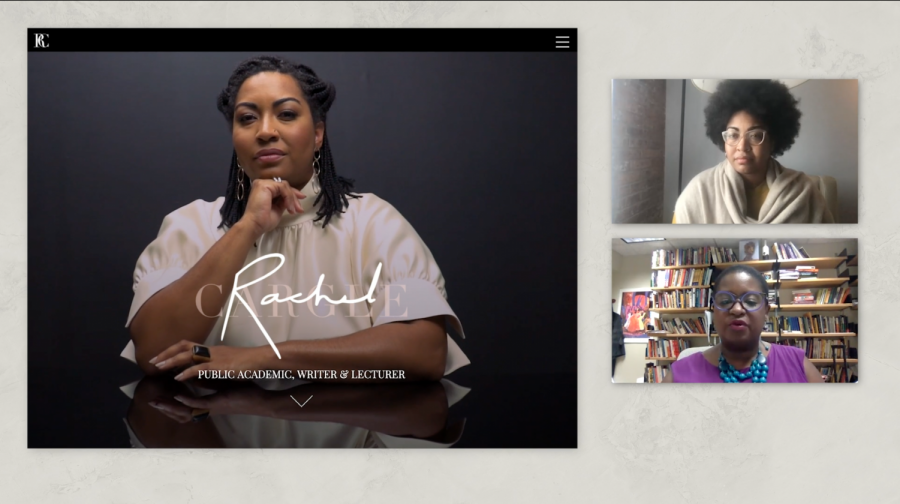Rachel Cargle Speaks On Activism, Self-Education
On Wednesday, activist and writer Rachel Cargle discussed the intersection of race and gender with Associate Professor of Africana Studies and Comparative American Studies Meredith Gadsby, special assistant to the President on racial equity and diversity.
The Presidential Initiative on Racial Equity and Diversity kicked off this Wednesday with a public Zoom discussion between activist and writer Rachel Cargle and Meredith Gadsby, special assistant to the president on Racial Equity and Diversity and associate professor of Africana Studies and Comparative American Studies. The dialogue spoke to both Black and white students, giving advice about self-care and allyship.
During their conversation, Cargle spoke about her activism at the intersection of feminism and anti-racism, and about how sharing her self-education online grew into large-scale social media activism.
“My activism really started as an opportunity for me to learn out loud and ensure that the people I was fighting alongside in the world of feminism were deeply aware of how they play into my Blackness as well, and I refused to let it slide,” Cargle said.
She also spoke to the power of using platforms to engage in activism, regardless of the size of the audience, and called on students to engage in activism within their own communities.
“My activism is not rooted in my exposure — my activism is rooted in the work that’s getting done,” Cargle said. “Your platform is your classroom, your dinner table; your platform is your neighborhood; your platform is your friend group. I want everyone to take into consideration how they’re showing up as an activist on their own platforms, in whichever way that is.”
Cargle also directly addressed Black students with advice about self-care and mental health. She touched on her own experience of balancing anti-racist educational work with spending time in safe spaces. Cargle started her nonprofit — the Loveland Foundation, which has provided over 20,000 hours of free therapy to Black women and girls — out of these experiences.
“Rachel offers an example of how [social media] can be used to facilitate conversations and resources to defend and nurture Black lives,” Gadsby wrote in an email to the Review. “I hope that students, especially Black students, see that they can do whatever in the world they want. That they belong in any space they want to be, because our ancestors already paid the price of our freedom.”
These thoughts come at an especially salient moment due to the outrage and grief many students feel after a recent grand jury’s decision not to indict the police officers who killed Breonna Taylor in the spring.
“We are tired, but we continue to mobilize,” Gadsby wrote in her email. “This is why it is so important to take care of ourselves, not just to survive the deaths of Tamir Rice, Trayvon Martin, Botham Jean, Ahmaud Arbery, Breonna Taylor and too many others, but to keep fighting. Those who claim to be allies need to roll up their sleeves and get to work, too.”







